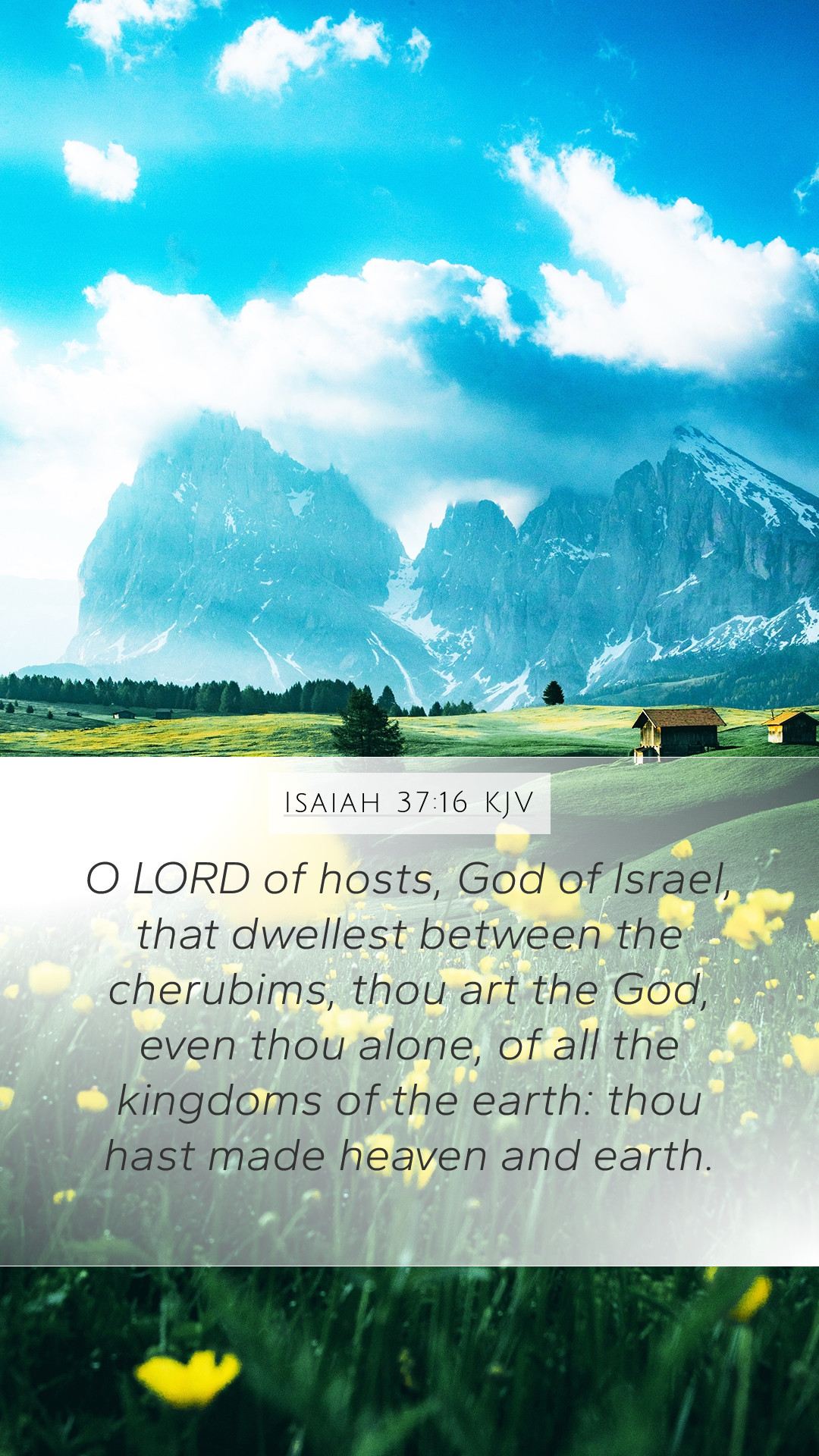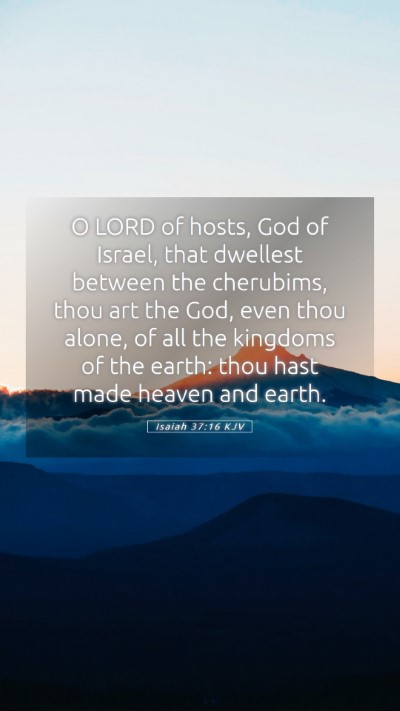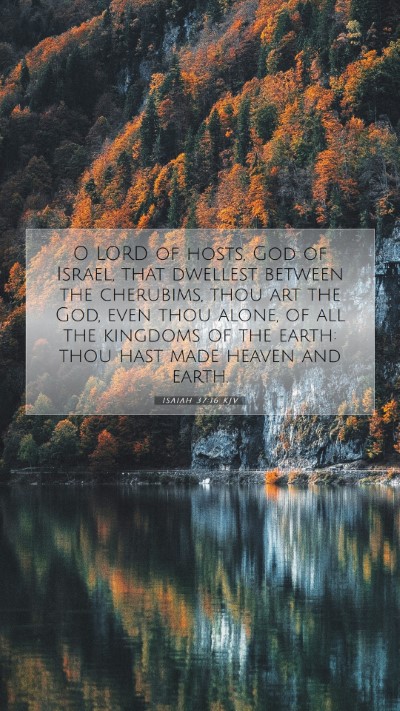Understanding Isaiah 37:16
Bible Verse: Isaiah 37:16
"O Lord of hosts, God of Israel, that dwells between the cherubim, You are God, even You alone, of all the kingdoms of the earth; You have made heaven and earth."
Bible Verse Meaning
This verse is a part of King Hezekiah's prayer to God during a critical moment when the Assyrian king, Sennacherib, threatened Jerusalem. In this prayer, Hezekiah acknowledges the sovereignty of God over all creation as well as His unique relationship with Israel.
Insights from Public Domain Commentaries
Matthew Henry's Commentary
Henry's take emphasizes the earnestness of Hezekiah's supplication. He acknowledges God as the supreme ruler of the universe, emphasizing His dwelling "between the cherubim"—a reference to God's presence in the Holy of Holies in the temple. This alludes to His holiness and the special relationship He maintains with His people. Hezekiah's recognition that God is alone the God of all kingdoms conveys not only faith but also an understanding of God's omnipotence in the face of overwhelming odds.
Albert Barnes' Notes on the Bible
Barnes outlines the theological significance of Hezekiah's plea. By calling upon "the Lord of hosts," Hezekiah identifies God as the commander of the angelic armies, advocating for divine intervention. Barnes points out the significance of acknowledging God as the one who created both heaven and earth, thus underscoring the futility of man’s power compared to divine authority. This recognition of God’s majesty serves to bolster the faith of the people during a time of crisis.
Adam Clarke's Commentary
Clarke elaborates on the phrase "between the cherubim," interpreting it as a direct reference to the Ark of the Covenant and God's glorious presence. He emphasizes that Hezekiah’s prayer is not merely a recitation of facts but an invocation of God’s authority and past deeds. Clarke asserts the importance of recognizing God’s sovereignty as foundational to prayer, especially in times of desperation, encouraging believers to trust in God’s power to save and deliver.
Key Themes in Isaiah 37:16
- God's Sovereignty: The verse highlights God's unmatched authority over all nations and creation.
- The Nature of Prayer: Hezekiah's prayer is a model for believers, demonstrating how to approach God in faith during trials.
- The Relationship with Israel: This indicates God's unique covenant with Israel, reminding believers of His promises and faithfulness.
Application and Relevance
For modern believers, Isaiah 37:16 serves as a powerful reminder of God's personal involvement in their lives. In facing challenges, it encourages placing trust in God’s supreme authority and power. Acknowledging God’s greatness and sovereignty in prayer can lead to transformative experiences and increased faith.
Bible Cross References
- Psalm 99:1-3 - God's sovereignty over all the earth.
- 2 Kings 19:15 - A parallel account of Hezekiah's prayer to God.
- Isaiah 37:14-15 - Further context of Hezekiah's threats and his call to God.
Conclusion
In conclusion, Isaiah 37:16 encapsulates significant themes of divine sovereignty and prayerful reliance on God. The insights from public domain commentaries enrich understanding of this verse, making it a valuable subject for Bible study groups and individuals seeking a deeper biblical exegesis. This verse serves not only as historical narrative but also as a timeless reminder of the nature of God and His commitment to those who call upon Him in faith.


